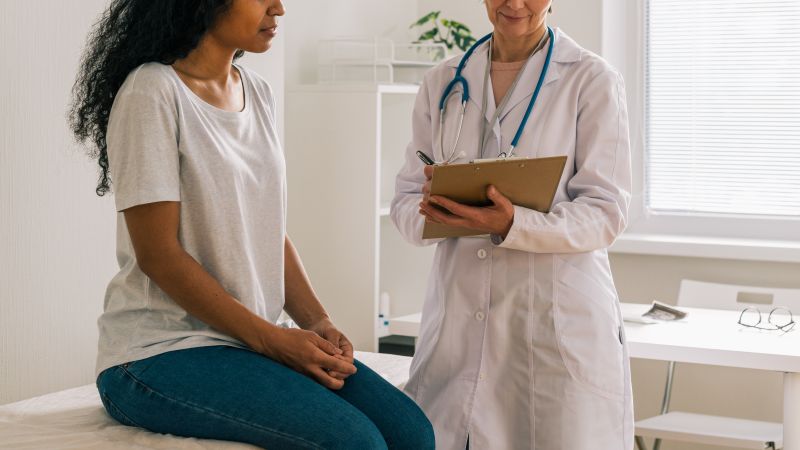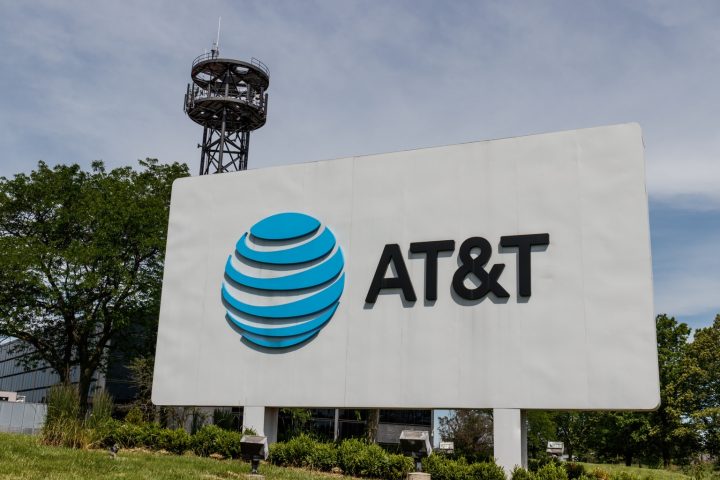Poseida Therapeutics (NASDAQ:PSTX) is expected to release results from the phase 1 study using P-BCMA-ALLO1 for the treatment of patients with relapsed or refractory multiple myeloma [r/r MM] on April 8th, 2024 12:30 p.m. PT at the American Association for Cancer Research [AACR] Annual Meeting in San Diego. Why should investors care? For starters, if this catalyst is positive, it could cause the stock price to trade higher. Positive data was already released at the ASH 2023 medical conference using P-BCMA-ALLO1 to treat this relapsed/refractory patient population. Secondly, additional data released there could further establish proof-of-concept in using this allogenic off-the shelf CAR-T approach to treat hematological malignancies. Another factor to consider would be that it would move the treatment paradigm forward in the CAR-T space.
Most approved CAR-Ts now for hematological malignancies rely on an autologous approach, whereas this company is looking to get away from that, moving to an allogeneic approach. It is not doing so alone, because it has the backing of a big pharmaceutical company by the name of Roche (OTCQX:RHHBY), which is helping it to advance P-BCMA-ALLO1 for r/r MM and then other allogeneic CAR-T candidates in the pipeline, such as P-MUC1C-ALLO1 for targeting solid tumors. With big pharma backing of the entire allogeneic CAR-T pipeline, plus an upcoming data readout of the phase 1 study at the AACR 2024 Annual meeting, I believe that investors can benefit from any potential gains made.
P-BCMA-ALLO1 For The Treatment Of Patients With Relapsed/Refractory Multiple Myeloma
One of the main clinical programs in Poseida’s pipeline would be the use of P-BCMA-ALLO1, which is being advanced in a phase 1 study for the treatment of patients with relapsed/refractory multiple myeloma [r/r MM]. Multiple Myeloma is a type of hematological disorder characterized as cancer of white blood cells. The problem is that the white blood cells do not only become cancerous, but they start to proliferate in a rapid fashion, leading to extensive problems for the patient. If left unchecked, this disease can damage several parts of the body such as the following:
- Immune system
- Kidneys
- Red blood cell count
- Bones
One of the main things to note is that this is a very large market opportunity. It is said that the global multiple myeloma market size is projected to reach $31 billion by 2026. The thing to note though is that this market being targeted will be reduced because it is the intention of advancing the phase 1 study to solely target MM patients who are relapsed/refractory. That is, patients who have already been treated with a prior anti-BCMA targeted therapy.
As I stated above, Poseida along with its partner Roche are gearing up to report additional results from the ongoing phase 1 study using P-BCMA-ALL01 for the treatment of patients with relapsed/refractory multiple myeloma [r/r MM] at the AACR 2024 Annual Meeting. This is one catalyst to consider with respect to this program, because there is another opportunity this year for investors to consider as well. Barring a green light from Roche, there is a chance that another batch of data from this phase 1 open-label study could be released again in the 2nd half of 2024. This sets up for another milestone to keep an eye on. The phase 1 open-label, dose escalation study is designed with multiple cohorts in mind where patients were given a variety of doses of P-BCMA-ALLO1. Prior to be given this CAR-T, as is customary, patients received a lymphodepletion therapy. Such a therapy is important to clear all T-cells in the body and allow autologous/allogeneic CAR-T treatments to achieve better persistence in the intended treatment environment. That is, to maximize engraftment for longer duration of response. In essence, lymphodepletion acts as a complete reset of the tumor microenvironment [TME], allowing for superior efficacy of a given CAR-T.
The concept of using lymphodepletion is not new, but the allogenic approach of using CAR-Ts is starting to evolve. Especially, when it comes to Poseida Therapeutics’ technology. When it comes to the “off-the-shelf” CAR-T, the goal is to retrieve T-cells to be modified from healthy donors, thus no need to wait to get T-cells from the patients to be treated specifically. This, right away creates a competitive advantage over other available and experimental autologous CAR-T approaches. I believe that the upcoming Poseida data readout from the phase 1 study should not only be monitored as a catalyst, but also the company’s ability to prove its technological approach in moving the treatment paradigm of CAR-T forward. For instance, it utilizes Cas-CLOVER gene editing to accomplish two tasks, which are:
- Deletion/disruption of T-cell receptor beta gene to remove unwanted immune reactions from CAR-T such as graft-versus host disease [GvHD]
- Deletion/disruption of Beta-2 microglobulin gene to remove patient’s immune system from rejecting CAR-Ts deployed that have mismatched HLA proteins, thus allowing for improved CAR-T persistence
Finally, what makes Poseida’s technology unique and may also provide a competitive advantage would be its ability to deliver large cargo, with something known as piggyBac. This allows for the delivery of multiple genes at the same time, if necessary, to counter antigen escape when it comes to a single-antigen targeting approach.
I would say that the technology is on the right track, especially since both Poseida and Roche have already released positive results from the phase 1 study using P-BCMA-ALLO1 for the treatment of patients with relapsed/refractory multiple myeloma [r/r MM]. Again, such data was released at the 2023 ASH medical conference, where lymphodepletion along with this CAR-T produced adequate safety/efficacy data. Positive data came from two cohorts known as P1 and P2, whereby pooled data showed that 9 out of 11 patients [82%] given P-BCMA-ALLO1 had achieved an objective response rate [ORR]. Why the focus on these patients and not the others? It is because these patients in cohort P1 and P2 had received adequate lymphodepletion with cyclophosphamide. This finding of increase pre-condition dosing not only leads to the possibility of better ORR being reported at the AACR 2024 Medical conference with respect to P-BCMA-ALLO1 targeting patients with relapsed/refractory MM, but also the use of P-MUC1C-ALLO1 for the treatment of patients with solid tumors. Thus, this is another catalyst to be presented at this medical conference. The goal is to show that patient responses can not only be improved upon just by increasing to higher doses such as 2×106 cells/kg, but by also increasing doses of lymphodepletion at either 500 mg/m2 [P1] or 1,000 mg/m2 [P2]. The point here being that it may be possible to effectively target solid tumors using Poseida’s improved allogenic off-the-shelf CAR-T if adequate pre-conditioning is deployed. The ORR rate shown above of 82% is quite impressive, especially if you consider that these r/r MM patients had received a median of 7 prior lines of therapy before being given P-BCMA-ALLO1. It looks like going forward, it would be ideal for Poseida and Roche to deploy higher dosing of cyclophosphamide preconditioning.
Financials
According to the 10-K SEC Filing, Poseida Therapeutics had cash, cash equivalents and short-term investments of $212.2 million as of December 31st of 2023. The company has been able to attain funding from two big pharma which has helped to improve the cash situation. One way was with the $50 million strategic investment received from Astellas (OTCPK:ALPMY) back in August of 2023. The other way would be with respect to the Roche collaboration and license agreement that was generated. This provided Poseida the ability to obtain an upfront payment of $110 million and then up to $110 million based on near-term milestones being achieved. Plus, it could be eligible for future development and commercial milestones and tiered royalty payments as well. The thing is that as long as the Roche milestone payments continue to come into play, Poseida is well capitalized for an extended period going forward. That is, it believes that it has enough cash on hand to fund its operations into the 2nd half of 2025.
Risks To Business
There are several risks that investors should be aware of before investing in Poseida Therapeutics. The first risk to consider would be with respect to the advancement of the lead CAR-T product in the pipeline known as P-BCMA-ALLO1, which is being advanced in the ongoing phase 1 study for the treatment of patients with relapsed/refractory multiple myeloma. Additional results from this early-stage study are going to be released at the upcoming AACR Annual Meeting 2024 and then again in the latter part of this year. There is no assurance that additional results to be released at this medical conference are going to turn out to be positive. Secondly, there is no guarantee that increased dosing of lymphodepletion agents such as cyclophosphamide is going to result in improved P-BCMA-ALLO1 persistence in this or any other hematological malignancy.
A second risk to consider would be with respect to the P-MUC1C-ALLO1 candidate, which is being advanced in the ongoing phase 1 study. This is an even bigger risk compared to the one above, because the use of CAR-Ts in being able to treat patients with solid tumors is bigger feat to achieve. Upon the release of data, there is no guarantee that CAR-T cell persistence will be achieved in such solid tumor patients. However, there is a good chance that Poseida might make a breakthrough, because of what it has been able to observe with the higher dosing of pre-conditioning agents like cyclophosphamide noted above. Such lymphodepletion, along with higher CAR-T cell dosing, plus dual antigen targeting provided from other candidates in the pipeline such as P-CD19CD20-ALLO1 might be enough to overcome the challenge of CAR-Ts being used against multiple types of solid tumors.
This leads to the third risk in that the company hopes to stem the tide of antigen loss, by developing a dual antigen targeting CAR-T such as P-CD19CD20-ALLO1. There is no assurance this such a dual antigen targeting approach will be enough to counter the antigen loss observed in single-agent targeting CAR-Ts. In addition, results from the ongoing phase 1 trial using this allogenic CAR-T for the treatment of patients with B-cell malignancies, are expected to be released in the 2nd half of 2024, pending an okay from Roche. There is no assurance that such preliminary results to be released from this trial are going to be positive.
The fourth and final risk to consider would be with respect to the Roche partnership itself. That’s because many of the clinical candidates noted above, such as P-BCMA-ALLO1 and P-MUC1C-ALLO1 are being advanced in collaboration with this big pharma company. It is possible that Roche could choose to terminate this partnership agreement at any moment. If this were to happen, not only would it cause the stock price to trade lower, but it would lose two other benefits. The first of which would be the additional milestone payments to be received as part of this collaboration agreement to advance allogeneic off-the-shelf CAR-Ts for the treatment of patients with hematologic and solid tumor malignancies. The second of which would be the financial backing to advance these programs with a partner willing to fund trials.
Conclusion
I believe that the upcoming release of data at the AACR 2024 is going to be a huge inflection point for investors to keep an eye on. If the results are positive, not only would this cause the stock price to trade higher, but it would also prove that Poseida’s allogenic CAR-T approach achieves persistence beyond what has been observed with traditional autologous CAR-T approaches. I believe that this company is well equipped, because it has been able to enhance its CAR-T technology with other factors I described above. Most notably, to use an improved gene editing mechanism [Cas-CLOVER] and a superior cargo transporter [piggyBac].
It has other shots on goal, such as using a dual targeting mechanism with respect to the use of P-CD19CD20-ALLO1. Lastly, it is looking to see if it can do a better job at lymphodepletion, before patients move on to receive CAR-T. It is not going to be easy to accomplish such higher pre-conditioning, because it has to account for toxicity issues. If it does achieve a way to deploy improved conditioning for any cancer patient population using CAR-T, then it has a way to improve the treatment paradigm for this space. All of this is just dealing with the CAR-T development side of things. Poseida also hopes to move forward with a differentiated approach for gene therapy. That is to use piggyBac with non-viral nanoparticles as part of delivery. Preclinical data presented at ASH 2023 showed that P-FVIII-101 as a gene therapy may end up doing well in being able to treat patients with Hemophilia A. It was not only shown that stable transgene expression of Factor VIII [FVIII] could be provided, but also that there were other possibilities, such as: Re-dosing often with favorable safety profile, titration to efficacy and 52-week durability data in this disorder.
Editor’s Note: This article discusses one or more securities that do not trade on a major U.S. exchange. Please be aware of the risks associated with these stocks.
Read the full article here







